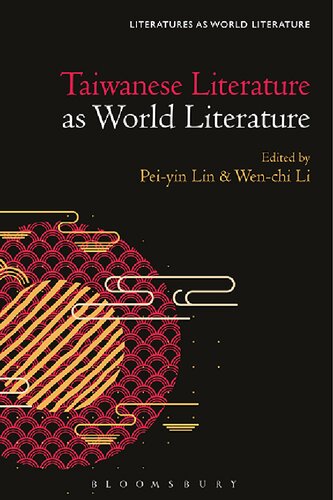

Most ebook files are in PDF format, so you can easily read them using various software such as Foxit Reader or directly on the Google Chrome browser.
Some ebook files are released by publishers in other formats such as .awz, .mobi, .epub, .fb2, etc. You may need to install specific software to read these formats on mobile/PC, such as Calibre.
Please read the tutorial at this link: https://ebookbell.com/faq
We offer FREE conversion to the popular formats you request; however, this may take some time. Therefore, right after payment, please email us, and we will try to provide the service as quickly as possible.
For some exceptional file formats or broken links (if any), please refrain from opening any disputes. Instead, email us first, and we will try to assist within a maximum of 6 hours.
EbookBell Team

5.0
100 reviewsThroughout the colonial era, Taiwanese writers gained inspiration from global literary trends mainly but not exclusively through the medium of Japanese and Chinese. Modernism was the mainstream literary style in 1960s Taiwan, and since the 1980s Taiwanese literature has demonstrated a unique trajectory shaped jointly by postmodernism and postcolonialism. These movements exhibit Taiwanese writers’ creative adaptations of world literary thought as a response to their local and trans-national reality. It is also during the postwar years that Taiwanese literature began to be more systematically introduced to world readers through translation. Over the past few decades, Taiwanese authors and their translated works have participated in global conversations, such as those on climate change, the "post-truth" era, and ethnic and gender equality.
Bringing together scholars and translators from Europe, North America, and East Asia, the volume focuses on three interrelated themes—the framing and worlding ploys of Taiwanese literature, Taiwanese writers’ experience of transculturation, and politics behind translating Taiwanese literature. It aims to stimulate new ways of conceptualizing Taiwanese literature, demonstrate remarkable cases of Taiwanese authors’ co-option of world trends in their Taiwan-concerned writing, and explore its readership and dissemination.